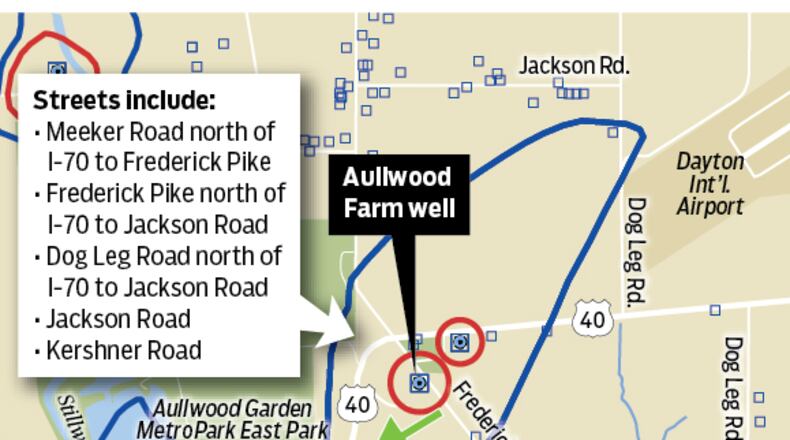A third party sampling service has reported an additional three wells in the area that are contaminated with PFAS, ODH said.
Linda Aller, a hydrologist with Bennett and Williams Environmental Consultants Inc., has detected the contaminants in a total of six wells in the area, she said, noting that she reported two to the state. Homeowners hired her to sample their wells for the chemicals. It’s not clear how many other third party services have collected water samples in the area or if they detected PFAS.
The levels of PFAS in all the wells that have tested positive for the chemicals are below the U.S. Environmental Protection Agency’s recommended action level of 70 parts per trillion, Aller and ODH said. A part-per-trillion is the equivalent of a grain of sand in an Olympic-size pool.
Ohio has adapted the U.S. EPA’s recommended action level, although some states’ action level are in the teens or single digits. Drinking water that is contaminated with PFAS is harmful, regardless of the level, Aller and other experts have said. Homeowners should install a remediation system if their drinking water has any amount of PFAS, particularly if they have children, she said.
“If these were my kids and I lived in a house (with PFAS), I would have a whole house filter,” she said. “I might play with my life, but I would never play with my child’s life.”
PFAS are dubbed “forever chemicals” because there’s currently no technology that can destroy them. Exposure to the chemicals has been linked to affects on pregnancy, an increase in cholesterol levels and some forms of cancer, according to the Centers for Disease Control and Prevention. Infants and children, pregnant and nursing women, and those who have a compromised immune system might be at a higher risk of health effects from PFAS exposure.
The state started testing private wells in the community after the Ohio EPA detected PFAS at a combined level of 96 PPT in Aullwood Farm’s public drinking water system in August. The center is located at 9101 Frederick Pike in Montgomery County’s Butler Twp., between the city of Englewood on the west and Dayton International Airport to the east.
Public Health-Dayton & Montgomery County and ODH then sent letters to 180 home owners near Aullwood, recommending that they test their private wells for the pollutants. ODH, in consultation with Gov. Mike DeWine’s office, chose to pay for the testing of some wells.
Residents told to test their wells are in the area of:
- Meeker Road, north of I-70 to Frederick Pike.
- Frederick Pike, north of I-70 to Jackson Road.
- Dog Leg Road, north of I-70 to Jackson Road.
- Jackson Road.
- Kershner Road.
State officials have declined multiple times to say which streets the wells they’ve tested are located on. However, the six wells the agency has determined to have some levels of PFAS are all located north of Aullwood. Of the six wells with levels of PFAS that Aller sampled, two are north of Aullwood, one east, one west, one south and another southeast of the facility, she said.
ODH has not come to any conclusions based on the results so far, but its scientists are still in the process of analyzing data points and discussing next steps, said Alicia Shoults, an agency spokeswoman. A third round of sampling and testing will be conducted north/northeast of the area that’s been tested, she said. Aller said she will continue sampling wells in the area as long as residents hire her.
About the Author
